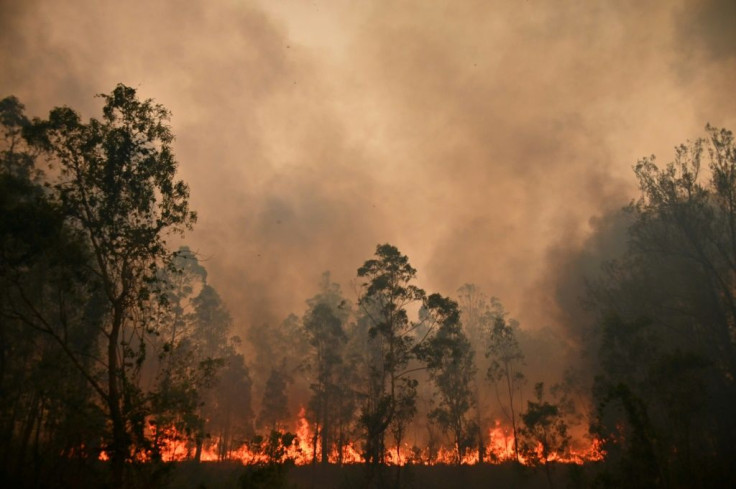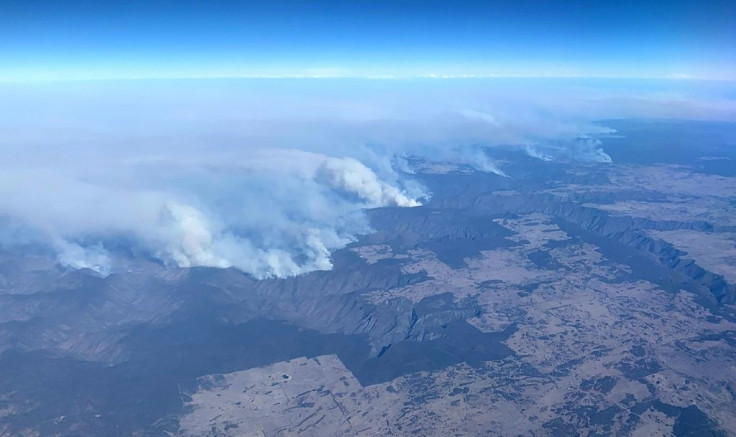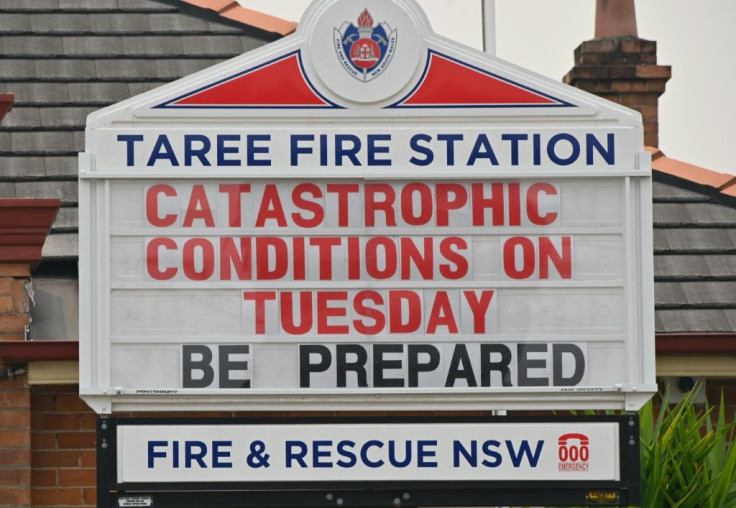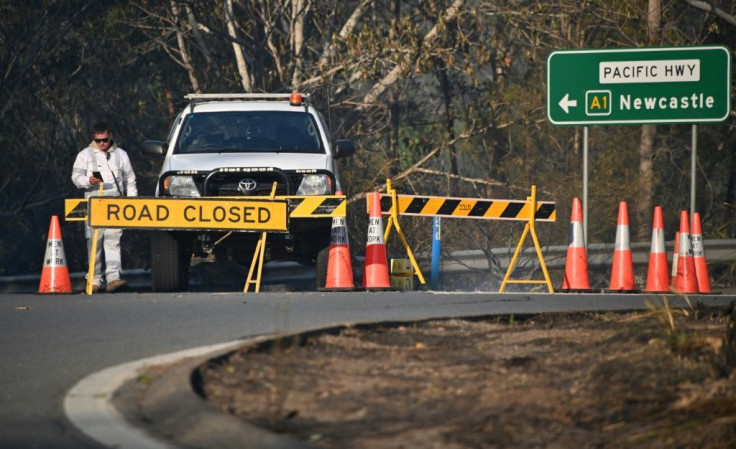Sydney Region Faces 'Catastrophic' Bushfire Threat

Sydney residents were warned of "catastrophic" danger and a state of emergency was declared Monday as Australia girded for a fresh wave of devastating bushfires.
For the first time, Australia's largest city and the surrounding area faced the top level of fire warning -- with authorities warning "lives and homes will be at risk".
"There is nothing built or designed to withstand... catastrophic" conditions, said Shane Fitzsimmons, commissioner of the rural fire service for New South Wales state, which encompasses Sydney.
High temperatures and strong winds were expected to create tinderbox conditions Tuesday, prompting state premier Gladys Berejiklian to declare the seven-day state of emergency.
More than 350 schools will be closed, a broad fire ban has been put in place and the military is providing logistic support for firefighters.
Three people have died, thousands have been displaced and more than 150 homes destroyed by dozens of out-of-control blazes in the state's north.

In the last few months, roughly 11,000 square kilometres (4,200 square miles) -- an area larger than Jamaica or Kosovo -- has been scorched, according to the New South Wales fire service.
Conditions eased on Monday and some residents were able to return home, although a heavy haze lingered over many fire-hit regions.
The Blue Mountains to Sydney's west, the wine-producing Hunter Valley to the north as well as the Illawarra region to the city's south are expected to be the hardest hit.

In the town of Rainbow Flat, emergency services were cutting down trees and trying to open roads to get livestock away from the potential path of the fires.
"Tomorrow is about protecting life, protecting property and ensuring everybody is safe as possible," said Berejiklian.

Some communities faced the threat of fresh blazes even as they picked up the pieces from the last one.
In Old Bar, firefighters were back-burning to starve the fire of fuel, while helicopters dropped water from overhead.
"There (are) unburned pockets of land, so we have actually... burnt it out so it doesn't pose a threat in the next couple of days," said firefighter Brett Slavin.
Shirley Murphy, 82, returned from evacuation and said she was "very lucky" to have her home still standing. "You can rebuild a home but you can't rebuild lives."
Months of drought have sapped moisture from the earth and vegetation across much of eastern Australia, creating dangerous conditions for the outbreak and spread of wildfires.
Many fires have been burning since October, which according to Paul Read, an expert at Monash University, was "much earlier than usual and will get worse as summer gets closer".
As well as the direct risk from fire, Read said there will be a broader risk associated with smoke haze.
"An air quality index (AQI) above 300 is considered hazardous to everybody, not just the vulnerable," he said, adding that level had already been breached in multiple locations, including Sydney.
Haze was reported as far away as New Caledonia, almost 1,500 kilometres across the Coral Sea.
The severity of the fires so early in the season has sparked arguments about the threat from climate change and fresh criticism of the conservative government's refusal to curb the use of fossil fuels.
Deputy Prime Minister Michael McCormack, leader of the rural National Party in the governing coalition, drew ire for suggesting now was not the time to talk about the climate.
"We don't need the ravings of some pure, enlightened and woke capital-cities greenies at this time, when (people) are trying to save their homes," he said.
arb/dm/kaf
© Copyright AFP 2024. All rights reserved.





















